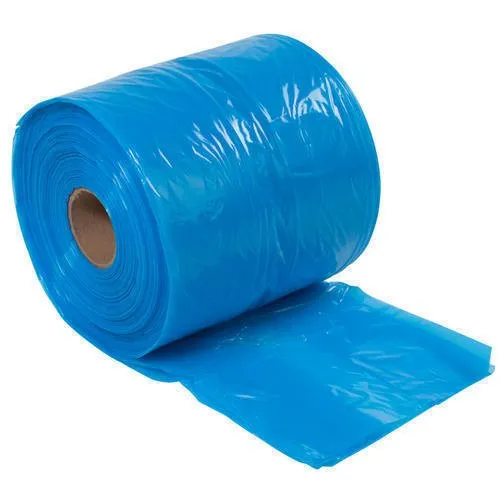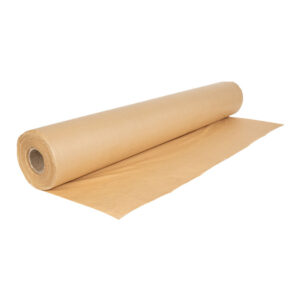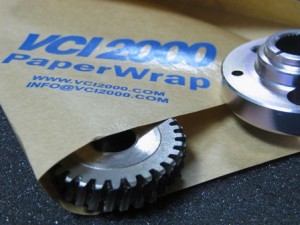VCI films go beyond conventional packaging by actively preventing corrosion. Corrosion is a natural process that can occur when metals come into contact with moisture and oxygen. VCI films are designed to inhibit corrosion by releasing special chemicals that form a protective layer on the metal surface. This layer acts as a barrier, preventing moisture and oxygen from reaching the metal and causing corrosion.
The chemistry behind VCI films is complex but fascinating. These films typically contain a blend of volatile chemicals that have been carefully chosen for their ability to protect against corrosion. Once the VCI film is in place, the chemicals slowly vaporize and fill the enclosed space with a protective layer.
This layer adheres to the metal surface and creates an atmosphere where corrosion cannot occur. VCI films are highly effective, even in challenging environments with high levels of humidity or exposure to saltwater. They can be used for various applications, from protecting metal parts in machinery to preserving sensitive electronics during shipping. The effectiveness of VCI films depends on several factors, such as the type and thickness of the film, as well as the level of exposure to moisture and oxygen. Careful consideration must be given to the specific requirements of each application when choosing the right VCI film.
Many VCI films are biodegradable, ensuring minimal impact on the environment after use. These films can also reduce the need for additional protective measures, such as oils or desiccants. By using VCI films, businesses can save time and money while ensuring their products arrive in pristine condition. The development of VCI films is an ongoing process with researchers constantly working to improve their performance. New materials and additives are being tested to enhance the effectiveness and versatility of VCI films.
Introducing VCI Films, an innovative solution for protecting metal parts from corrosion
Films is a game-changing solution in corrosion protection for metal parts. A chemical compound that prevents metal corrosion. VCI Films are made of plastic infused with these inhibitors. When placed around metal parts, VCI Films release these inhibitors into the air, forming a protective layer on the metal’s surface. This protective layer prevents moisture and oxygen from reaching the metal, stopping corrosion before it even starts. VCI Films are not only effective but also versatile. They can be used for various metal parts, including machinery, tools, and automotive components. Unlike traditional protective methods, such as oils and greases, VCI Films leave no residue on the metal surface. This makes them ideal for parts that require immediate use without cleaning. With VCI Films, you can save time and money by skipping the cleaning step.
VCI Films are also easy to apply. Simply wrap the metal parts with the film and secure it in place with tape or heat sealing. The film is flexible and can conform to the shape of the part, ensuring complete coverage. VCI Films provide long-lasting protection. The inhibitors continue releasing for months, guarding against corrosion even during storage and transportation. VCI Films are environmentally friendly since they don’t contain harmful substances like other corrosion protection methods. They are safe to use in various industries, including automotive, aerospace, and marine. VCI Films is a cost-effective solution. By preventing corrosion, they extend the lifespan of metal parts, reducing the need for frequent replacements. With VCI Films, you can ensure the quality and durability of your metal parts, giving you peace of mind. Whether you need to protect small screws or large machinery, VCI Films have you covered.
Unraveling the chemistry behind VCI Films; how they work to inhibit corrosion
The chemistry behind VCI Films involves a process called adsorption. Adsorption is the attraction and binding of molecules to a surface. In the case of VCI Films, the corrosion inhibitors adsorb onto the metal’s surface. The chemistry of VCI Films is based on the principle of chemical equilibrium. The inhibitors released by the films establish an equilibrium between the vapor phase and the metal surface. This equilibrium ensures a constant supply of inhibitors to protect the metal.
The efficacy of VCI Films depends on factors such as temperature, humidity, and contact time. Higher temperatures and humidity can accelerate the release of inhibitors, providing enhanced protection. Contact time refers to the duration of exposure to the VCI Films. Longer contact times result in a stronger protective layer on the metal’s surface.
The films are available in various formats, including sheets, bags, and even stretch films. VCI Films offers a cost-effective and efficient solution for corrosion prevention. Using this protective packaging can extend the lifespan of metal objects and reduce maintenance costs. Their ability to form a protective layer and block harmful elements makes them crucial in many industries.
Exploring the effectiveness of VCI Films in preventing rust and extending the lifespan of metal components
VCI films are highly effective because they not only protect metal surfaces from existing rust but also proactively prevent new rust formation. Once the VCI film is applied, it continuously releases corrosion inhibitors, ensuring long-term protection.
The effectiveness of VCI films can be attributed to their ability to reach every nook and cranny of a metal component, providing comprehensive rust prevention. Furthermore, VCI films are easy to apply and do not require extensive preparations before use.
Additionally, VCI films are suitable for a wide range of metals including iron, steel, aluminum, and copper. They can be used for a variety of applications such as metal storage, shipping, and even protection during manufacturing processes. By using VCI films, you can significantly extend the lifespan of your metal components, saving you time and money on costly repairs or replacements. Moreover, the use of VCI films can contribute to environmental sustainability as it reduces the need for toxic anti-rust chemicals.
Understanding the different types of VCI Films available and their specific applications
There are several different types of VCI Films available, each with its unique characteristics and applications.
One of the most common types is the VCI polyethylene film, which is durable, inexpensive, and provides excellent corrosion protection. VCI polyethylene films are often used for packaging and shipping metal products, such as automotive parts and machinery.
Another type is the VCI paper film, which combines the protective properties of VCI with the versatility of paper. VCI paper films are often used for wrapping individual metal items or interleaving layers of metal sheets or coils.
There are also VCI stretch films, which offer the convenience of stretch film and the corrosion protection of VCI. VCI stretch films are commonly used for palletizing metal products and securing them during transport or storage. For applications that require high clarity and transparency, VCI films made from polyvinyl chloride (PVC) are preferred. These films are commonly used for packaging sensitive metal products, such as electronics and medical devices.
In addition to these types, there are also VCI films available in various formats, such as bags, sheets, and tubing. The choice of VCI film depends on factors such as the specific metal being protected, the duration of protection needed, and the environmental conditions. It is important to choose the right type and format of VCI film to ensure effective corrosion protection. Before using any VCI film, it is recommended to thoroughly clean the metal surface to remove any contaminants.
The VCI film should be applied tightly, without any gaps or folds, to ensure maximum protection. VCI films work by releasing a corrosion-inhibiting vapor that forms a protective layer on the metal surface. This layer acts as a barrier, preventing moisture and oxygen from reaching the metal and causing corrosion. The effectiveness of VCI films can be extended by using them in combination with other corrosion protection methods, such as desiccants or moisture barrier bags.
Practical tips for using VCI Films effectively to maximize their corrosion-inhibiting properties
Before using VCI Films, ensure that the metal surface is clean and free from any oils or contaminants.
Properly wrap the metal object in the VCI Film, ensuring complete coverage and a tight seal.
If your metal object is large or irregularly shaped, consider using a VCI Film bag or tubing to provide a custom fit.
When storing multiple metal objects, separate them with layers of VCI Film to prevent contact and potential corrosion.
Depending on the environment and the level of protection required, you may need to use additional desiccant or moisture-absorbing products.
It’s important to regularly inspect the VCI Film for any tears or damages that may compromise its effectiveness.
If you notice any tears or damages, replace the affected section or the entire VCI Film to maintain optimal protection.
Be aware of the recommended shelf life of the VCI Film and avoid using expired products to ensure maximum effectiveness.
Store the VCI Films in a cool and dry location, away from direct sunlight or extreme temperatures, to maintain their performance.
Remember that VCI Films is not a substitute for proper surface preparation and good storage practices, so always follow manufacturer guidelines.






